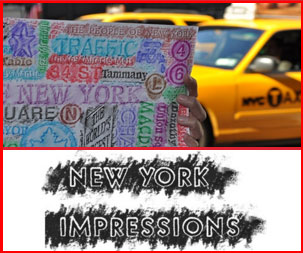If you were surprised by the recent attacks in Boston Commissioner Raymond Kelly wasn’t.”When something like Boston happens, it’s a shock to the public, but not to us.” Kelly said adding that he was also surprised such an attack did not happen sooner. “We’ve seen these types of disaffected, radicalized young men target us.”
Yet while Kelly cited “Sheer luck” as to why New York has avoided another attack it is also because of the fierce determination of his department in combating threats that keep us safe.
Indeed, one of the reasons that NYPD have prevented a repeat of 9/11 is because the New York Police Department has painstakingly studied and implemented preventive measures since that horrible day in 2001.
It cannot be over emphasized however that New York City still remains the jewel in the terror attack crown.
As Kelly best describes it “New York is the No. 1 target in this country, and if you look at terrorism as theater, this is the world’s biggest stage. Kelly said.
Now NYPD have released a report. It is a document all New Yorker’s should read.
hhttp://www.nyc.gov/html/nypd/downloads/pdf/public_information/NYPD_Report-Radicalization_in_the_West.pdfould read.
The introduction is written by Commissioner Kelly and sums up the threat of Radicalization to the West and New York. The threat is real, 9/11, and Boston were not one off attacks. It is vital that we remain vigilant and on alert at all times.
In his preface Commissioner Kelly writes:
“While terrorism has been with us for centuries, the destructive power and global reach of
modern terrorism is unprecedented. The entire world witnessed the attacks of
September 11, 2001, but most of the attacks and attempted attacks since then have
shown 9/11 to be an anomaly rather than the standard pattern for terrorism in the
homeland.
If the post-September 11th world has taught us anything, it is that the tools for conducting
serious terrorist attacks are becoming easier to acquire. Therefore intention becomes
an increasingly important factor in the formation of terrorist cells. This study is an
attempt to look at how that intention forms, hardens and leads to an attack or attempted
attack using real world case studies.
While the threat from overseas remains, many of the terrorist attacks or thwarted plots
against cities in Europe, Canada, Australia and the United States have been
conceptualized and planned by local residents/citizens who sought to attack their
country of residence. The majority of these individuals began as ―unremarkable‖ – they
had ―unremarkable‖ jobs, had lived ―unremarkable‖ lives and had little, if any criminal
history. The recently thwarted plot by homegrown jihadists, in May 2007, against Fort
Dix in New Jersey, only underscores the seriousness of this emerging threat.
Understanding this trend and the radicalization process in the West that drives
―unremarkable‖ people to become terrorists is vital for developing effective counterstrategies.
This realization has special importance for the NYPD and the City of New
York. As one of the country’s iconic symbols and the target of numerous terrorist plots
since the 1990’s, New York City continues to be the one of the top targets of terrorists
worldwide. Consequently, the NYPD places a priority on understanding what drives and
defines the radicalization process.
The aim of this report is to assist policymakers and law enforcement officials, both in
Washington and throughout the country, by providing a thorough understanding of the
kind of threat we face domestically. It also seeks to contribute to the debate among
intelligence and law enforcement agencies on how best to counter this emerging threat
by better understanding what constitutes the radicalization process.”
Raymond W. Kelly
Police Commissioner of the City.
We salute Commissioner Kelly and the entire NYPD, along with other Law Enforcement agencies for keeping our great City safe. With our help they can continue to do a splendid job. If you see something say something. Call 911.











